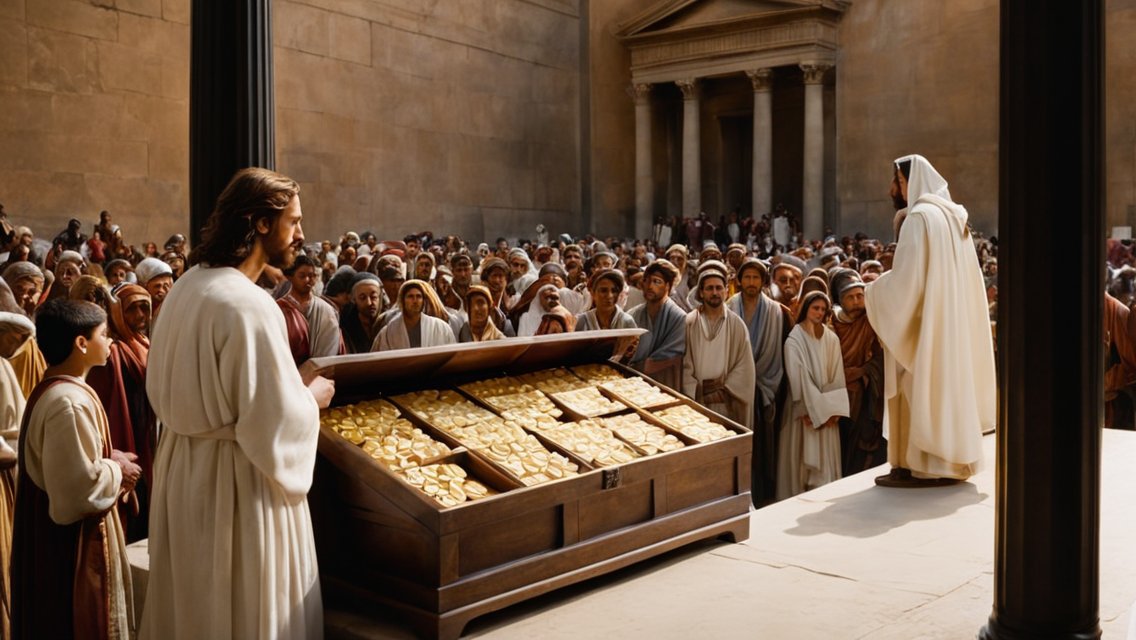Fifth Sunday of Lent Homily – Year B
Readings: Jer 31:31-34, Heb 5:7-9, Jn 12:20-33
1st Reading – Jeremiah 31:31-34
31 The days are coming, says the LORD, when I will make a new covenant with the house of Israel and the house of Judah.
32 It will not be like the covenant I made with their fathers the day I took them by the hand to lead them forth from the land of Egypt; for they broke my covenant, and I had to show myself their master, says the LORD.
33 But this is the covenant that I will make with the house of Israel after those days, says the LORD. I will place my law within them and write it upon their hearts; I will be their God, and they shall be my people.
34 No longer will they have need to teach their friends and relatives how to know the LORD. All, from least to greatest, shall know me, says the LORD, for I will forgive their evildoing and remember their sin no more.
Responsorial Psalm – Psalms 51:3-4, 12-13, 14-15.
R. (12a) Create a clean heart in me, O God.
3 Have mercy on me, O God, in your goodness;
in the greatness of your compassion wipe out my offense.
4 Thoroughly wash me from my guilt
and of my sin cleanse me.
R. Create a clean heart in me, O God.
12 A clean heart create for me, O God,
and a steadfast spirit renew within me.
13 Cast me not out from your presence,
and your Holy Spirit take not from me.
R. Create a clean heart in me, O God.
14 Give me back the joy of your salvation,
and a willing spirit sustain in me.
15 I will teach transgressors your ways,
and sinners shall return to you.
R. Create a clean heart in me, O God.
2nd Reading – Hebrews 5:7-9
7 In the days when Christ Jesus was in the flesh, he offered prayers and supplications with loud cries and tears to the one who was able to save him from death, and he was heard because of his reverence.
8 Son though he was, he learned obedience from what he suffered;

9 and when he was made perfect, he became the source of eternal salvation for all who obey him.
Verse Before The Gospel – John 12:26
26 Whoever serves me must follow me, says the Lord;
and where I am, there also will my servant be.
Gospel – John 12:20-33
20 Some Greeks who had come to worship at the Passover Feast
21 came to Philip, who was from Bethsaida in Galilee, and asked him, “Sir, we would like to see Jesus.”
22 Philip went and told Andrew; then Andrew and Philip went and told Jesus.
23 Jesus answered them, “The hour has come for the Son of Man to be glorified.
24 Amen, amen, I say to you, unless a grain of wheat falls to the ground and dies, it remains just a grain of wheat; but if it dies, it produces much fruit.
25 Whoever loves his life loses it, and whoever hates his life in this world will preserve it for eternal life.
26 Whoever serves me must follow me, and where I am, there also will my servant be. The Father will honor whoever serves me.
27 “I am troubled now. Yet what should I say? ‘Father, save me from this hour’? But it was for this purpose that I came to this hour.
28 Father, glorify your name.” Then a voice came from heaven, “I have glorified it and will glorify it again.”
29 The crowd there heard it and said it was thunder; but others said, “An angel has spoken to him.”
30 Jesus answered and said, “This voice did not come for my sake but for yours.
31 Now is the time of judgment on this world; now the ruler of this world will be driven out.
32 And when I am lifted up from the earth, I will draw everyone to myself.” He said this indicating the kind of death he would die.
Homily
The Gain in Grain
“If a grain of wheat falls into the earth and
dies, it bears much fruit” (In)
Jesus read the ‘Book of Nature’ to speak about salt, lilies, sparrows, sheep and vines. “Once upon a time, there was a grain of wheat,” Jesus began, “and this grain looked gorgeous – golden! lt sunbathed atop a tall stalk, sipping dewdrops, enjoying the dances of butterflies and the gentle caress of the wind. Suddenly the soil said, ‘0, grain of wheat, are you ready to fall down and die?” Jesus paused. His hearers were listening, captivated. He continued, “Truly, I tell you, unless that gain of wheat falls into the earth and dies, it remains only a single grain; but if it dies, it bears much fruit.”
The themes of suffering, surrender and dying are repeated as we approach Holy Week. Jesus’ prayer in today’s gospel is known as the ‘Johan nine Gethsemane’ since the tone is reminiscent of the Gethsemane episode: “Now my soul is troubled. What shall I say: Father, save me from this hour? But it was for this very reason that l have come to this hour. Father, glorify your name!” Jesus had understood the mystery of the wheat grain and was ready to surrender – for, he knew that Abba would make all things new.
Through Jeremiah, Yahweh promises the Jews in Babylon: “l will make a new covenant with you!” The old covenant was made at the time of the Exodus and written on tablets of stone; the prophesy of the new covenant is made in the context of the Babylonian Exile and written on human hearts. Forgetting the people’s infidelities, and forgiving them their sins, God calls them to newness.
The responsorial psalm (51), traditionally termed the Miserere, is a famous penitential psalm. The penitent prays for forgiveness and newness: “A pure heart create for me, O God, put a steadfast spirit within me!” This also echoes Jeremiah’s prophesy about forgiveness of sins, inner transformation and newness.
Like the gospel, the second reading from the Letter to the Hebrews is also a reflection of Jesus’ agony. “During his life on earth, Christ offered up prayers and entreaties with loud cries and tears . . . Although he was Son, he learned obedience through suffering.” isn’t it consoling that Christ is present in our cries and sufferings?
In today’s readings we have three ‘levels’ of struggle, surrender and dying: First, there is the level of surrender and death in nature (grain of wheat); second, there is the sin, struggles, surrender of a people (Jews in Babylonian Exile); and third, there is the suffering, cries, tears and surrender of Jesus (letter to the Hebrews). But, the surrender has a purpose, namely, to foster newness, to yield a rich harvest, and to bring about salvation. Am i ready for struggle and for surrender, so that my life becomes salvific?
‘Hope for the ‘Flowers’ is a well-known parable written by Trina Paulus. It tells of two caterpillars, ’Stripe and Yellow, who are crawling in a caterpillar queue (rat race) to reach the top of a tree. They see another caterpillar hanging upside down waiting to become a butterfly, who explains: “it looks like that you will die, but, you will really live. Life is changed!” Convinced, Yellow surrenders and becomes a butterfly; Stripe continues crawling. Am I ready to surrender and fly rather than crawl? To yield hundredfold harvests rather than survive selfishly?
Death is not an end-time event. I must die daily. in her diary entitled “An Interrupted Life”, a Dutch Jewess, Etty Hillesum (27), who died in the Auschwitz concentration camp in 1943 wrote: “Every day I shall say farewell. And the real farewell, when it comes, will only be a small outward confirmation of what has been accomplished within me from day to day.” Am I ready for a daily death?
Did you notice that when the g-r-a-i-n disintegrates you get ‘rain’? And, surrendering the ‘R’ of the ‘Resurrection’, the little grain of wheat only stands to ‘g-a-i-n’?





